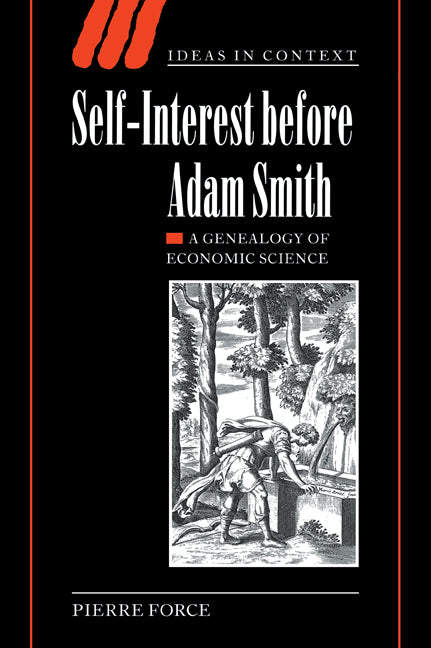Self-Interest before Adam Smith
A Genealogy of Economic Science
Author(s): Pierre Force
Couldn't load pickup availability
🚚 Please note we can only ship within the UK.
FREE delivery on books (excluding sale).
Delivery for other items is £1.50 - £4.50, calculated at checkout.
T&Cs apply.
Free click & collect on all orders.
Self-Interest before Adam Smith inquires into the foundations of economic theory. It is generally assumed that the birth of modern economic science, marked by the publication of The Wealth of Nations in 1776, was the triumph of the 'selfish hypothesis' (the idea that self-interest is the motive of human action). Yet, as a neo-Epicurean idea, this hypothesis had been a matter of controversy for over a century and Smith opposed it from a neo-Stoic point of view. But how can the Epicurean principles of orthodox economic theory be reconciled with the Stoic principles of Adam Smith's philosophy? Pierre Force shows how Smith's theory refutes the 'selfish hypothesis' and integrates it at the same time. He also explains how Smith appropriated Rousseau's 'republican' critique of modern commercial society, and makes the case that the autonomy of economic science is an unintended consequence of Smith's 'republican' principles.
Share


